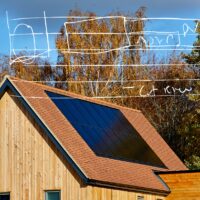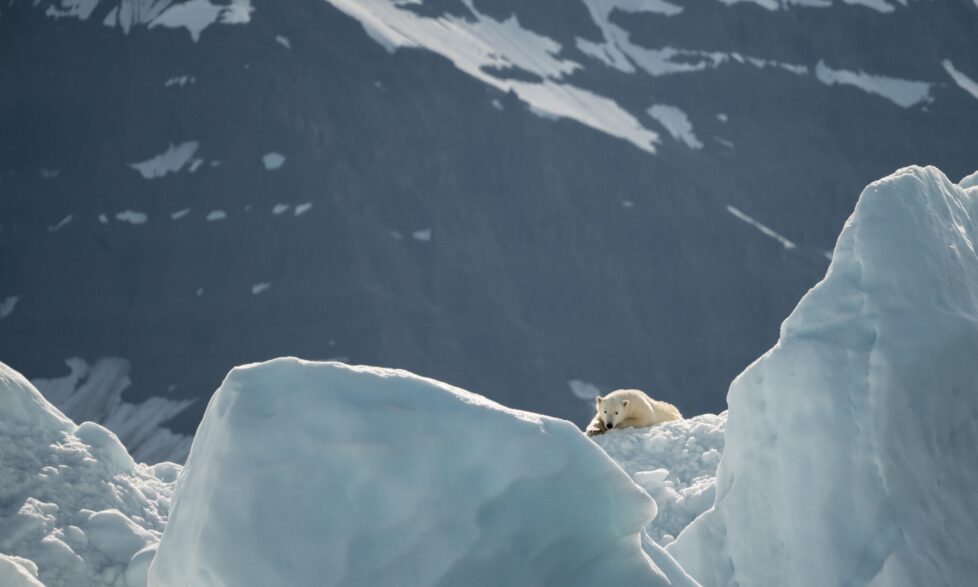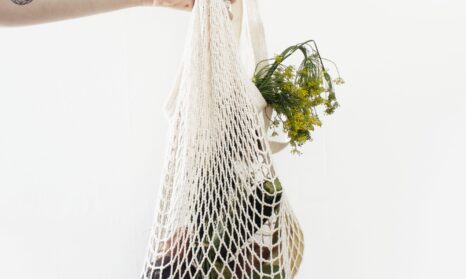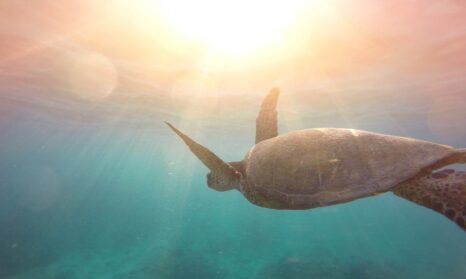Our Planet: 6 actions we can take to help the planet recover
“What we do in the next 20 years will determine the future for all life on Earth.” - David Attenborough
If you watched Netflix’s new wildlife documentary Our Planet at the weekend, you may have done so with mixed emotions. In awe at the beauty and complexity of life on this rare planet, and depressed at the damage we’ve done to it. But it was refreshing to hear a wildlife show openly talk about our impact on the world.
With the first episode titled ‘One Planet’, the environmental message was shining through loud and clear. We have one planet, and the people and wildlife that live here are under threat if we don’t start understanding this – and act accordingly.
And, of course, this message speaks directly to our heart as we’ve been championing One Planet Living for the last 25 years.
The scenes of stunning wildlife across the world were interspersed with the harsh reality of what we have done to the planet in just a generation. While two polar bear cubs play with one another, we’re reminded that within their lifetimes the arctic sea ice could be gone.
Yet as David Attenborough reminds us, “with our help, the planet can recover.”
But it’s sometime hard to know what to do. You might even question how much we can do as individuals. Won’t the real change come at the very least from governments and companies taking meaningful action?
You wouldn’t be wrong, but as individuals we can do a lot to show the demand for change is there. And if Blue Planet II showed us anything, it’s that business and governments do listen to citizens' demands.
6 things you can do to protect our planet
Use your voice
The author of 21 Lessons For The 21st Century Yuval Noah Harari suggests four questions to ask politicians before voting. One is: “What actions will you take to lessen the risks of climate change?” He says if they don’t understand that question, don’t vote for them.
As for the big chains, show them that people want sustainable options. Make it a habit to write or tweet to them whenever you come across needless plastic or unsustainable ingredients or materials.
Look out for big campaigns that need your support like Natural Climate Solutions which is urging government to restore ecosystems as a way to help nature thrive and to capture carbon from the atmosphere.
Follow the flexitarian trend
Going completely vegetarian or vegan is a tall order for most people. But it’s easy to reduce the amount of meat you eat and still enjoy food – in fact, a recent poll showed a third of Britons have reduced or stopped eating meat. Here’s an explainer about why that’s so important.
There are some delicious and affordable vegetarian and vegan recipes out there. Try buying mostly vegetarian or vegan groceries and treat yourself to meat or dairy once or twice a week. And whatever you do, only eat fish that's sustainably sourced like certified MSC.
Make the switch to renewable energy
If you can, switch to a renewable energy provider. A 2018 report from the International Renewable Energy Agency said renewable energy will be consistently cheaper than fossil fuels by 2020. Hubbub has a great guide on how to go about this.
Fly less – take more local holidays
Burning fossil fuels has a much greater effect on the climate at high altitude than it does on the runway, so find ways to reduce your flying. With Europe and under-appreciated areas of the UK on our doorstep, there is so much to see just a train ride away.
But if you are flying, choose a reputable offset.
Zero-in on zero-waste
Make sure you’re recycling properly and get a kitchen caddy from your council if they provide them. It’s amazing how much we send to landfill that can be put to far better use. Recycle Now has a useful guide on what you can recycle at home or in your local area.
But the most important thing you can do is to reduce your waste in the first place. Our zero-waste survival kit can help with this.
Break the climate change taboo
If enough people start talking about climate and ecological breakdown every day, the more it’ll be accepted as reality and the less it’ll be resisted.
Talking about climate change can be the most challenging of all, but there are ways to push through the discomfort as this useful guide explains. For example, if the person you are talking to doesn’t care about animals, don’t talk about starving polar bears.
For more inspiration into what you can do, have a read of WWF's 12 ways to fight for our world.
One Planet Living is our vision of a world where everyone, everywhere lives happy, healthy lives within the limits of the planet – and a straightforward framework to achieve this. Discover how people and projects around the world are using the framework to create truly sustainable change.






